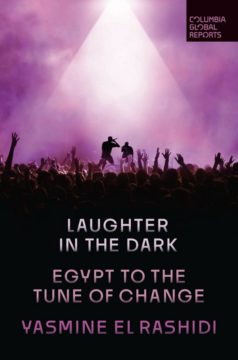Peter Holslin in the Los Angeles Review of Books:
 Mahraganat (which means “festivals” in Arabic) is made primarily by self-taught young men from lower-class backgrounds, whose songs are considered brash, even vulgar, because they rap and sing openly about their lives with seldom a trace of modesty. Egypt’s canonical singers and composers from the 20th century, particularly Umm Kulthum, Abdel Halim Hafez, and Mohammed Abdel Wahab, possessed a virtuosic command of improvisational technique and classical repertoire. By comparison, mahraganat artists appeal first and foremost to friends from the block, weaving a unique lexicon of Arabic slang, boasts, insults, drug references, and sexual innuendo. The artists use Auto-Tune not only to add distortive, festive color to their rugged street anthems, but also for its manufacturer-intended purpose: to keep their voices in tune.
Mahraganat (which means “festivals” in Arabic) is made primarily by self-taught young men from lower-class backgrounds, whose songs are considered brash, even vulgar, because they rap and sing openly about their lives with seldom a trace of modesty. Egypt’s canonical singers and composers from the 20th century, particularly Umm Kulthum, Abdel Halim Hafez, and Mohammed Abdel Wahab, possessed a virtuosic command of improvisational technique and classical repertoire. By comparison, mahraganat artists appeal first and foremost to friends from the block, weaving a unique lexicon of Arabic slang, boasts, insults, drug references, and sexual innuendo. The artists use Auto-Tune not only to add distortive, festive color to their rugged street anthems, but also for its manufacturer-intended purpose: to keep their voices in tune.
More here.
